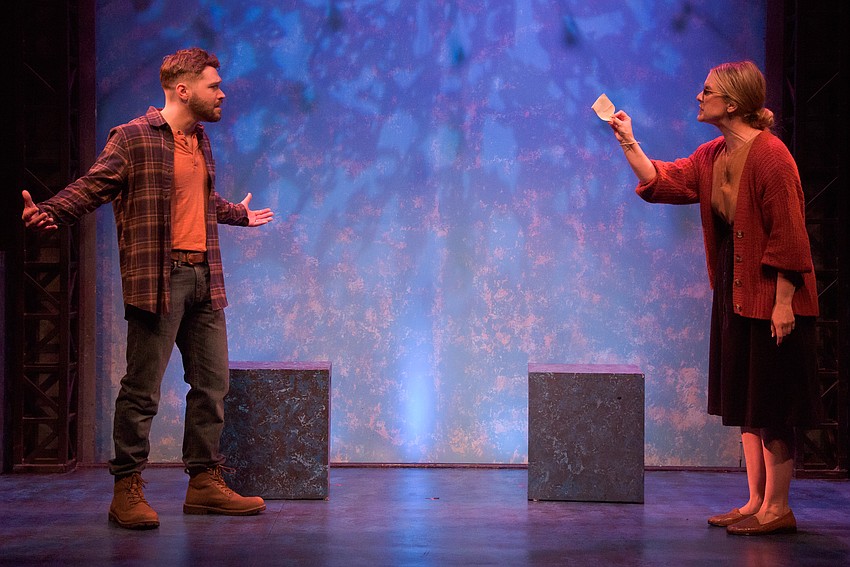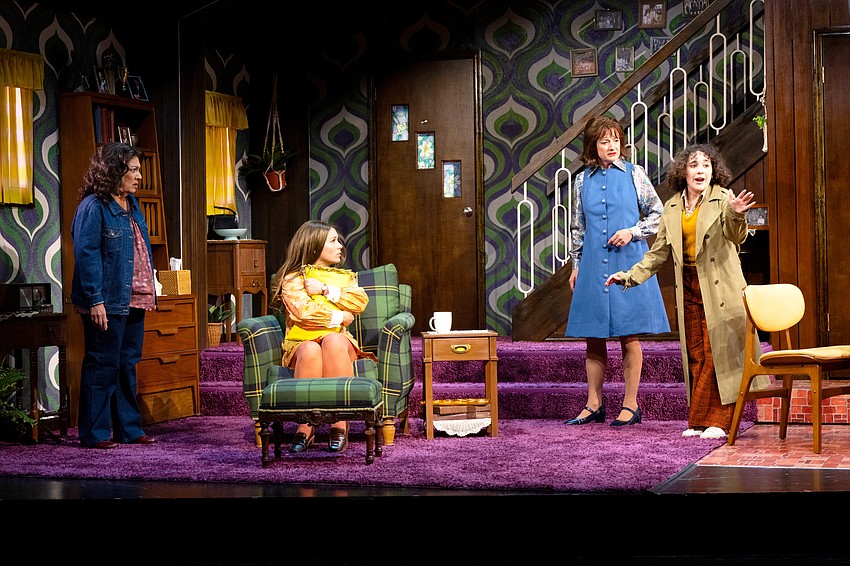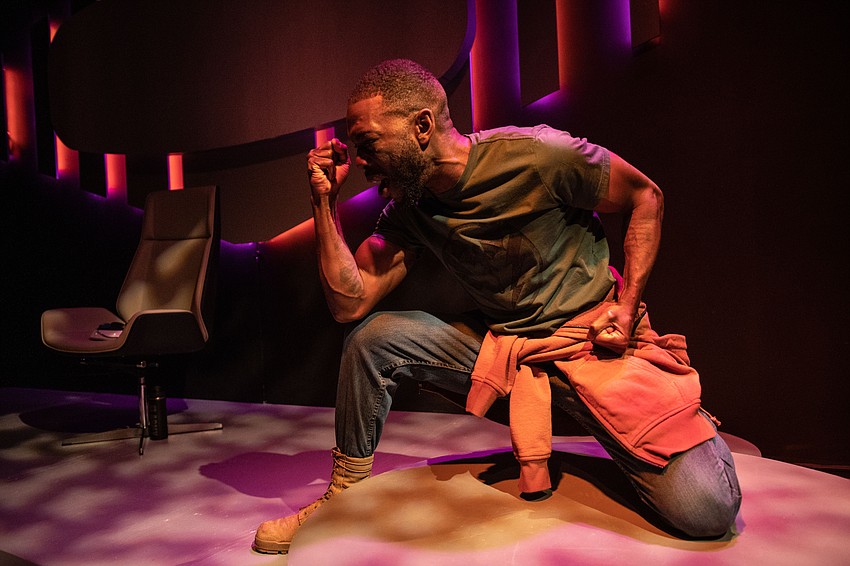- December 26, 2024
-
-
Loading

Loading

As the season winds down in Sarasota, there are four plays worth seeing that are closing in April. Sunshine, sailing and other social opportunities may beckon, but don't miss some of the best that local theater has to offer.
To help find the right seat, check out these mini reviews.
"Love's Labour's Lost," the Asolo Conservatory's latest show, isn't officially a musical, but it's stuffed with songs. The plot? Simply put, this is Shakespeare.
King Ferdinand (Rueben Wakefield), the ruler of Navarre, strives to be a philosopher king. His entourage of three lords are academic aristocrats as well. To sharpen their mental focus, they make an idiotically idealistic vow: For the next three years, they’ll forgo contact with women.
With perfect timing, the Princess of France (Brielle Rivera Headrington) shows up with her entourage of three highly desirable ladies.
The King and his men are filled with amorous thoughts — and second thoughts about that vow. There’s far more to it than that — but the complications aren’t the main attraction.
This early comedy, first performed in 1597, is Marxist Shakespeare. “Marxist" as in Groucho, Chico, Harpo and sometimes Zeppo. “Love’s Labour's Lost” isn’t about keeping your vows anymore than “The Cocoanuts” is a study of South Florida real estate scams. The plot is a glorious excuse for Shakespearean silliness.
Director Jonathan Epstein adapted The Bard's play and collaborated with Daniel Levy in farcing it up with songs. I assume Levy and Epstein worked closely together. Epstein is sensitive to Shakespeare's word music; the actual music never gets in the way. The resulting tour de farce is a hilarious romp.
COVID delayed Etan Frankel’s "Paralyzed" but didn't kill it. This season, it finally hit the stage at the Florida Studio Theatre. Here’s the basic story. Or stories…
Leigh (Rachel Moulton) is a bit of a control freak with OCD tendencies. She’s got a high IQ and two doctoral degrees. Leigh loves math because it’s eternal, predictable and unchanging. She hides from real life because it doesn’t always add up.

Lee (Alexander Stuart) is a good-natured good ol' boy. In the brains department, he’s average. In the brawn department, Lee is a hard-charging, rising football star. Off the field, Lee doesn't score many touchdowns.
Leigh and Lee share snippets of their hard-luck stories.Their disjointed soliloquies gradually converge. The force pulling them together? An apparent suicide note that Leigh found behind a hotel toilet on a very bad night.
That’s the bare bones of Frankel’s fable. These dry bones seemed dead in 2020 — now they’re dancing around at FST. Their skeletal gavotte is witty, funny, satiric, frightening, metaphorical, philosophical and existential.
Despite the black comedy, it isn’t a happy-happy joyride. It gets harrowing at times. But never boring.
In Katie Forgette’s “Incident at Our Lady of Perpetual Help," the action unfolds in a blue-collar Catholic community in the 1970s. While officially a “memory play,” it’s an unreliable narrator’s remembrance of things past.
That narrator is Linda O’Shea (Erin O’Connor) — an adult telling the story of her 19-year-old self. Back in 1973, something turned teenage Linda’s life upside down — and the rest of the O’Shea family’s lives along with it.

So what happened exactly? Linda’s younger sister, Becky (Willa Carpenter) was 13 years old. Her mother Josephine “Jo” (Lise Bruneau) should share the facts of life with her youngest daughter — but it makes her cry just thinking about it. So she passes the job off to her oldest daughter.
Linda does a good job but uses blunt words. Wannabe detective Becky captures those words on a hidden tape recorder. Father Lovett (Jay Russell), the family’s parish priest, gets his hands on the cassette. In his unforgiving hands, it’s explosive ammunition.
Forgette’s comedy has a great concept. It’s also high-concept — and self-conscious of its own artificial artistry. Director Céline Rosenthal makes the most of the playwright’s hall of mirrors. She gets the audience howling while Linda makes up her mind about what her story really was — and either placates or fends off other family members who want to take control of the narrative.
Jacqueline Goldfinger’s “Backwards, Forwards Back” at the Urbanite Theatre is a one-man play. The protagonist is unnamed. In Goldfinger’s script, he’s simply “The Soldier” (L. James). He’s a combat veteran who’s come back from Iraq, but not intact.
The Soldier’s mind has been shattered by PTSD. Combat’s random slaughter has rewired his nervous system. Certain triggers can instantly turn him into a killing machine.

After his sister issues an ultimatum, The Soldier goes to the VA center and asks for help. The treatment they give him is virtual reality immersion therapy. (It’s a real thing.)
The Soldier’s VR goggles play wartime scenes. Most of the time, nothing’s happening. Then — without warning — a jump-cut to ultraviolence. The terror comes in small doses at first, then increases. The Soldier slowly builds a tolerance. You can tell he’s getting it together.
It’s powerful stuff, but Goldfinger’s not trying to push your buttons. “Backwards Forwards Back” isn’t a manipulative emotional roller coaster. It’s a glimpse into one veteran’s psychic reality.
Director Brendan Ragan takes an egoless approach. He gets out of the story’s way and lets the actor do his job. With a script this good and an actor this talented, that’s wise.